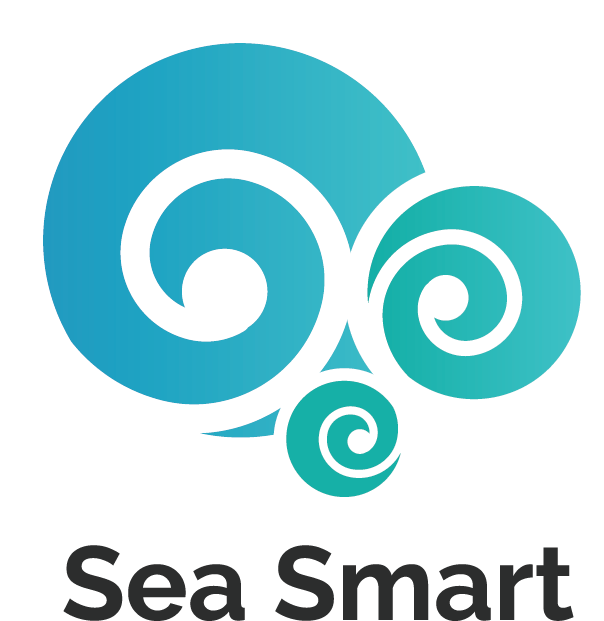Guest Blog: A Closer Look at Netflix Documentary Seaspiracy
Written by Aroha Miller, Sea Smart Volunteer
The destruction of marine life and habitats is real, and it is a global issue.
Thus, I watched Seaspiracy, the latest controversial documentary produced by Kip Andersen and directed by Ali Tabrizi, with a sense of anticipation at seeing some of today’s biggest ocean issues highlighted to a massive Netflix audience. My sense of anticipation rapidly gave way to annoyance as “old” topics were re-hashed and viewers were subjected to a haphazard and superficial introduction to issue after issue, none of which were properly investigated. My impatience surfaced as I waited for new information or ideas to be raised and my skepticism came out in force at some of the facts and figures being bandied about and presented in an over-simplified manner.
I was enormously surprised that climate change got barely a mention and left unimpressed with the one-sided arguments presented, the bullying tactics of the interviewers, and the naïve approach taken to the entire documentary. I finished Seaspiracy no wiser, frustrated at the weak and simplistic final message to ‘stop eating fish’, appalled at the perpetuation of certain ethnic stereotypes, yet also pleased that some of the issues facing our oceans are finally garnering some well-deserved attention by a mainstream audience.
WHAT SEASPIRACY DID WELL
One certainly cannot critique the efforts made by this team to highlight some major ocean issues – over-fishing, plastic pollution, and human slavery. The Seaspiracy team has indeed managed to pinpoint some key ocean issues, and they have managed to get people talking about these issues. But that, unfortunately, is where I leave off this section.
WHAT SEASPIRACY DIDN’T DO WELL
Unfortunately, while touching on some of the big ocean issues – because no one can deny humans are over-exploiting marine resources and harming oceans – Seaspiracy took only a superficial look at the complex and interwoven social, economic, environmental, and political narratives that contribute to over-fishing, plastic pollution, and human slavery. Trying to pin the ill-health of many ocean systems and species on a single cause is simplistic and naïve, and yet that is what director Tabrizi tries to do, blaming it all on over-fishing.
He races viewers through plastic pollution, illegal whaling, tuna fishing, shark finning, over-fishing, human slavery aboard fishing vessels, to the indiscriminate critique of sustainable seafood labels, before returning to over-fishing as the single biggest cause of declining ocean health. Any one of those topics was worthy of a documentary in and of itself.
The Seaspiracy team created greater drama by using simplistic – or simply inaccurate – interpretations of scientific terms, data, and statistics. For example, they confuse and misuse the terms bycatch and discards, and thereby present numbers that are inaccurate, and to a non-marine educated audience, staggeringly high. Climate change is largely ignored, while the contribution of land-based plastic pollution to our oceans is downplayed, and instead lost or discarded fishing gear (known as ghost gear) is blamed.
However, that is not to say that plastic is not a huge issue in our oceans – it is – but the root causes of this pollution need to be addressed (stopping plastic pollution at its source), rather than simply focusing on one piece – ghost gear – that conveniently supports the rest of the documentary.
In critiquing one ecolabel, unfortunately, all ecolabels/sustainable seafood labels become lumped under one identity, sowing distrust among consumers and in one foul swoop casting doubt on many trusted sustainable seafood labels (for instance, take a look at Ocean Wise’s Sustainable Seafood label for an example of a trusted, scientifically reputable, evidence-based ecolabel that helps consumers to make ocean-friendly choices). Most sustainable seafood labels go to extreme lengths to ensure the seafood they give a sustainability accreditation to really deserve it.
Conservation organizations have historically consisted mainly of privileged white people who believe they are “doing good” by viewing the world through their own narrow lens of experience. This documentary, unfortunately, does little to address this stereotype, but instead goes even further to villainize and promote anti-Asian sentiments (for example, the Japanese fishermen killing dolphins; seafood markets in Hong Kong; commercial Asian-owned and crewed fishing boats), while the white heroes sail to the rescue. It ignores the many people living in Asian countries who also fight daily against over-fishing and slavery, putting their lives at risk.
It is also with this lens of white privilege that the final message is flung at us – stop eating fish. This message totally ignores that the majority of people in this world do not have the financial means to make such dietary choices. It ignores the centuries-long reliance of many peoples on the oceans for food and cultural connectedness. It ignores that small-scale fisheries can – and have been for centuries – sustainable. It ignores the huge subsidies given to industrial fishing from governments. It ignores that many governments and NGOs are working hard to properly manage commercial fishing stocks to prevent over-fishing and address plastic pollution.
But it did get us talking about some major ocean issues. It heightened our awareness of the detrimental effects of improperly managed, illegal, unregulated, and destructive fishing practices. It made us take a closer look at plastic pollution, even if the focus was only on ghost gear. And it highlighted inequities and inequalities in fishing, associated industries, and conservation. Now we we need to act on that information to effect positive change.
HOW CAN YOU HELP?
Learn more about plastic pollution in our oceans by listening to Sea Smart’s short “Ocean Trash Talk” and make use of the many free resources available for the classroom to teach about ocean plastic pollution
.Choose to only consume seafood that has a trusted sustainable seafood label, such as Ocean Wise’s Sustainable Seafood, as indicated on restaurants and seafood packaging.
Support NGOs that are working in ocean conservation, by learning about what they do, volunteering with them, or donating to help them further their work.


